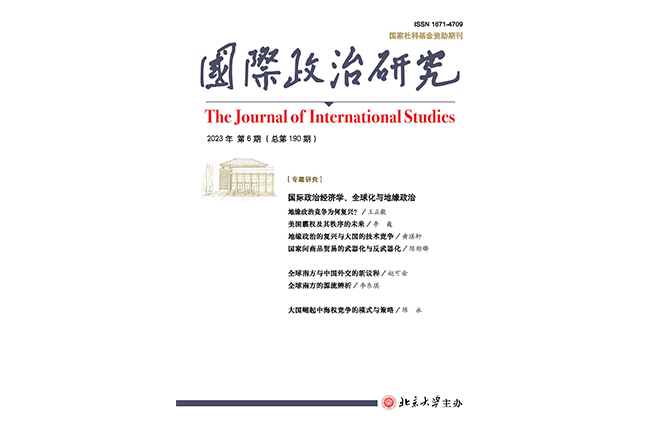Promoting theoretical innovation of Chinese int’l politics

FILE PHOTO: The Journal of International Studies
In the past decade, China’s international political research has made considerable progress. By tracing the research topics and theories in professional academic journals, it can be observed that China’s international political research has continuously promoted the development of theory, the setting of agendas, and the construction of disciplines on the path of combining history and reality, theory and practices, as well as academic nature and innovation.
Chinese perspective
First, the theoretical topics of China’s international political research have grown increasingly diverse, gradually transitioning from “international politics” to “world politics.”
“World politics” not only encompasses the traditional themes of international political research but also involves the internal politics of various countries and regions around the world. This transformation has significantly enriched the topics of international political research, expanding the selection of topics in international political journals.
Second, China’s international political research has continuously improved the level of theoretical elaboration concerning China’s participation in providing global public goods.
International political research has been actively exploring three areas: First, there is ongoing discussion on China’s development experience, such as the Chinese model and the Chinese path. Particularly summarizing and discussing the concept of Chinese modernization has been focused on. Second, there is a strengthened focus on the study of international organizations. Third, how China can better provide good public goods for the international community is being explored. Moreover, non-traditional security and global governance remain focal points of China’s international political research, with an increasingly diverse agenda setting.
China’s international political research has long been attentive to non-traditional security issues. In the past decade, discussions on relevant issues have become increasingly diverse, encompassing global climate governance, global public health governance, food security, water security, cyber security and more, all of which are important research areas.
Fourth, international political research has also been continuously promoting the construction of disciplines, supporting theoretical discussion and interdisciplinary integration in disciplines such as national security studies and Area Studies.
Independent knowledge system
China’s international political research has been continuously promoting the construction of first-level disciplines such as national security studies and Area Studies, deepening the discussion of theoretical paradigms and research methods, and actively constructing China’s independent knowledge system.
In general, the contributions of the international political academic community to Area Studies mainly focus on the following aspects: sorting and research on the history and theory of Area Studies, especially the sorting of its knowledge system; reflection on important issues in current Area Studies; discussions on the construction of the discipline of Area Studies. By promoting the construction of the discipline, the research of Area Studies can finally extract a set of basic concepts and construct its own knowledge genealogy on this basis.
In addition, in the past decade, China’s international political research has also explored interdisciplinary research, emphasizing the historical view of interdisciplinary research. The interdisciplinary fields involved include international political psychology, international political linguistics, quantitative research, etc..
In general, these discussions have greatly enriched and developed the issues in the field of international politics research, expanded the research field of international politics, and promoted the interdisciplinary development of international politics research.
However, in the face of the great historical opportunities of the profound changes unseen in a century, China’s international politics academic communities still must maintain a high degree of consciousness to integrate into the pace of the times, continue to promote theoretical innovation in China’s international politics, and provide more support for the theoretical development of related disciplines in IR research.
Zhuang Junju is a professor from the School of International Studies at Peking University.
Edited by ZHAO YUAN

 PRINT
PRINT CLOSE
CLOSE